 The gardening movement that places soil health at the center of plant health has been where Harlequin’s Gardens has experimented, succeeded and educated for the past 33 years.
The gardening movement that places soil health at the center of plant health has been where Harlequin’s Gardens has experimented, succeeded and educated for the past 33 years.
Mikl’s taking the movement well into the 21st Century! Here are his key points for sustainable gardening:
- Soil biology is the high road, not inputs made from fossil fuels or extractive methods.


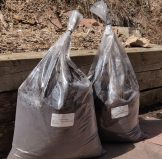
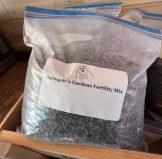
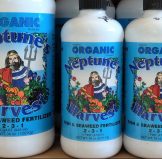 Neptune’s Harvest Organic Fertilizers
Neptune’s Harvest Organic Fertilizers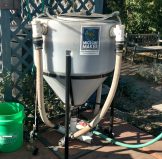 Compost Tea
Compost Tea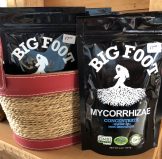 Big Foot Mycorrhizae
Big Foot Mycorrhizae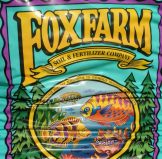 Fort Vee
Fort Vee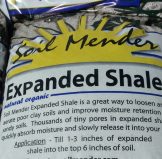 Expanded Shale
Expanded Shale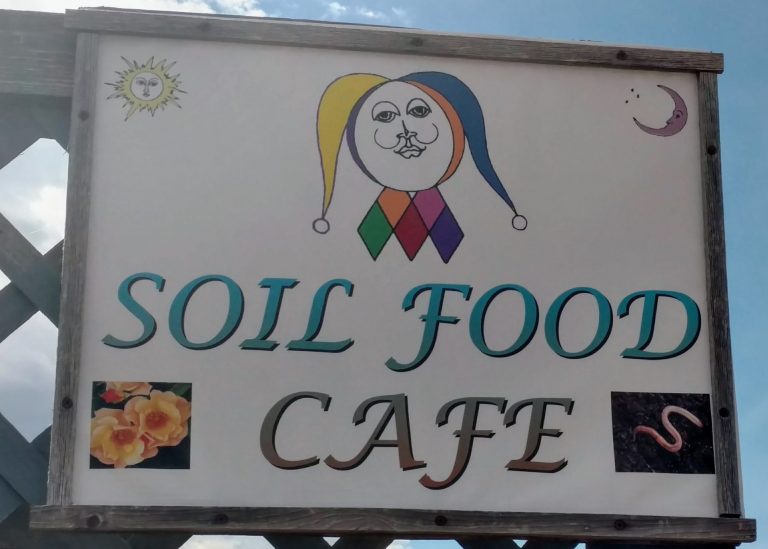
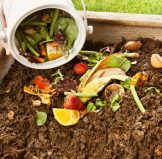 So even though there is nothing you can do at the moment, very soon, before it’s warm enough to plant, you can start making your bed sexy. Sexy soil sprouts seeds, grows roots and leaves, builds strength, makes flowers and fruit, and defends against pests.
So even though there is nothing you can do at the moment, very soon, before it’s warm enough to plant, you can start making your bed sexy. Sexy soil sprouts seeds, grows roots and leaves, builds strength, makes flowers and fruit, and defends against pests.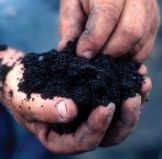 Let the biology do a lot of the work. It’s not hard to add more later; it’s very hard to correct too much. Keep the soil covered with mulch or living plants. Even native plants appreciate some compost to hold moisture and provide a light feeding when they are young. One more thing: avoid poisonous pesticides, fungicides and herbicides, like the plague. They kill or undermine the health of your allies—the soil life. Toxic pesticides are the opposite of sexy; they are like inviting the Grim Reaper into the bedroom. There are effective, non-toxic alternatives.
Let the biology do a lot of the work. It’s not hard to add more later; it’s very hard to correct too much. Keep the soil covered with mulch or living plants. Even native plants appreciate some compost to hold moisture and provide a light feeding when they are young. One more thing: avoid poisonous pesticides, fungicides and herbicides, like the plague. They kill or undermine the health of your allies—the soil life. Toxic pesticides are the opposite of sexy; they are like inviting the Grim Reaper into the bedroom. There are effective, non-toxic alternatives.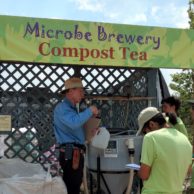 What about no-till? Not turning the soil makes sense once you’ve got the soil life in a good environment. Then you don’t want to disturb the symbiotic networks. Then you can feed from the surface; good tilth and worms will take the food down.
What about no-till? Not turning the soil makes sense once you’ve got the soil life in a good environment. Then you don’t want to disturb the symbiotic networks. Then you can feed from the surface; good tilth and worms will take the food down. We are having a real revolution in our relationship with our soils. The turning point is our change in focus from soil fertility to soil health. In the last 60 years of the “Green Revolution” (i.e. the petrochemical boom), soil was viewed as a physical structure and fertility was viewed as a measure of chemicals in the soil — primarily NPK, nitrogen, phosphorus and potassium. The petroleum industry could make these macronutrients from natural gas, which make plants grow but often in poor health. Weak plants attract insect pests and fungal diseases, so more petroleum in the forms of insecticides and fungicides added to the success of the oil industry. But this approach has led to “Peak Soil” where land is losing productivity, crops are losing nutritional value, the soil is eroding at extreme rates, and the health of animals and people has declined.
We are having a real revolution in our relationship with our soils. The turning point is our change in focus from soil fertility to soil health. In the last 60 years of the “Green Revolution” (i.e. the petrochemical boom), soil was viewed as a physical structure and fertility was viewed as a measure of chemicals in the soil — primarily NPK, nitrogen, phosphorus and potassium. The petroleum industry could make these macronutrients from natural gas, which make plants grow but often in poor health. Weak plants attract insect pests and fungal diseases, so more petroleum in the forms of insecticides and fungicides added to the success of the oil industry. But this approach has led to “Peak Soil” where land is losing productivity, crops are losing nutritional value, the soil is eroding at extreme rates, and the health of animals and people has declined.